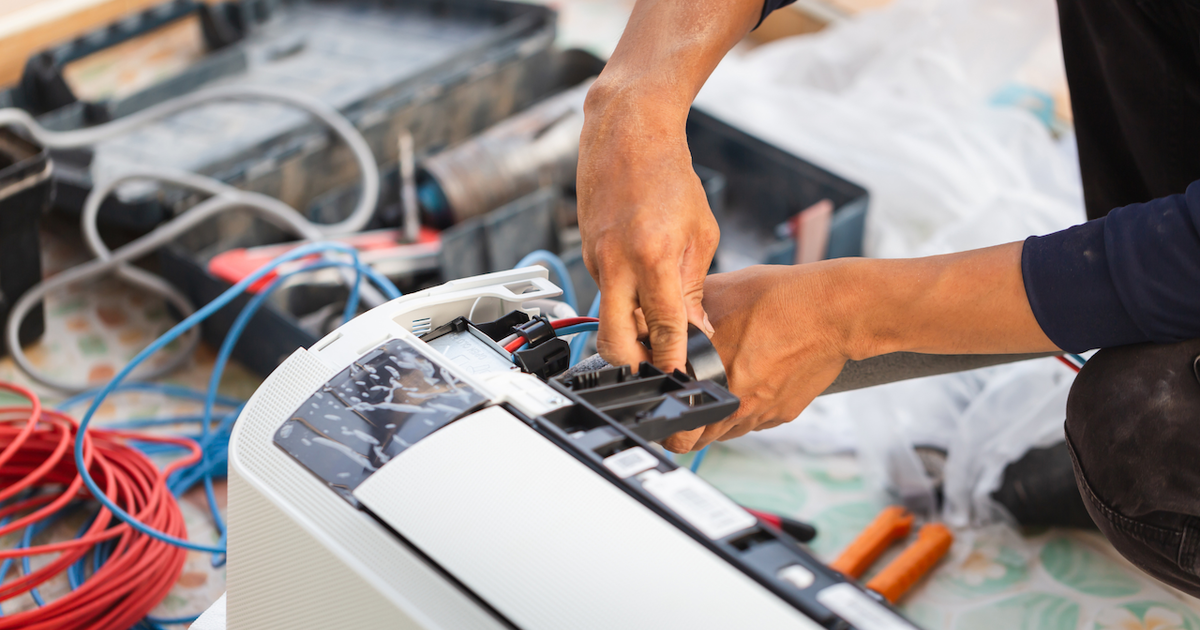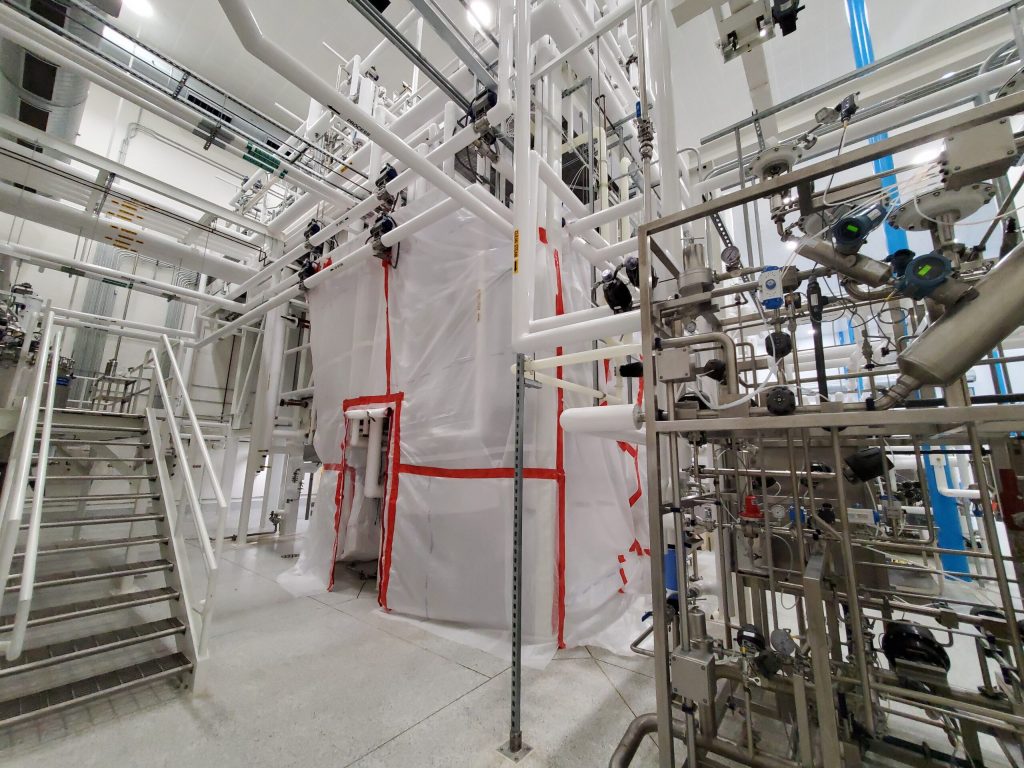Have you ever wondered what industry HVAC belongs to? Whether you’re thinking about a career, starting a business, or simply curious about how your heating and cooling systems fit into the bigger picture, understanding the HVAC industry is key.
This knowledge can help you make smarter decisions about your home, work, or future opportunities. Keep reading, and you’ll discover exactly where HVAC stands, why it matters, and how it impacts your daily life more than you might realize.

Credit: sbeodyssey.com
Hvac Industry Basics
Understanding the HVAC industry starts with knowing its basics. This sector covers a wide range of systems and technologies that control the indoor environment in homes, offices, and industrial spaces. Your comfort and health often depend on the efficient operation of HVAC equipment.
Core Components And Systems
HVAC stands for Heating, Ventilation, and Air Conditioning. These three elements work together to create a comfortable indoor climate. The core components include:
- Heating systems:furnaces, heat pumps, and boilers that provide warmth.
- Ventilation systems:fans, ducts, and air filters that circulate and clean the air.
- Air conditioning systems:units and chillers that cool the air.
Each system plays a critical role, and they often operate simultaneously to maintain air quality and temperature. Have you ever wondered how your home stays warm during winter and cool during summer without constant manual adjustments?
Primary Functions And Uses
The HVAC industry serves many sectors, including residential, commercial, and industrial buildings. Its main function is to regulate temperature, humidity, and air quality. This regulation protects occupants’ health and enhances productivity.
Beyond comfort, HVAC systems help reduce energy consumption when designed efficiently. Imagine saving money on your energy bills simply by using a well-maintained HVAC system. Do you pay attention to the air quality and temperature control in your workspace or home?
Key Sectors Served
The HVAC industry serves many sectors, providing essential heating, ventilation, and air conditioning solutions. Each sector has unique needs and challenges. Understanding these helps explain why HVAC is vital in daily life and business operations.
Systems vary by scale and function. They keep homes comfortable, ensure workplaces meet health standards, and protect sensitive environments.
Residential Applications
HVAC systems in homes control temperature and air quality. They provide warmth in winter and cooling in summer. Many families rely on HVAC to stay comfortable all year. These systems also improve indoor air by filtering dust and allergens.
Commercial And Industrial Uses
Businesses depend on HVAC to maintain safe and productive spaces. Offices, stores, and factories use complex systems. These systems manage large spaces and different zones. Proper ventilation helps remove pollutants and control humidity. Industrial HVAC often supports manufacturing processes and equipment cooling.
Specialized Environments
Some places need precise temperature and air control. Hospitals keep sterile air to protect patients. Data centers use HVAC to prevent overheating of servers. Laboratories require clean air and exact climate conditions. These specialized systems ensure safety and proper function.
Industry Classification
The HVAC industry fits into several key sectors based on its activities. Understanding this classification helps clarify its role in the economy and business landscape. This industry covers manufacturing, service, and technology fields. Each segment plays a unique role in delivering heating, ventilation, and air conditioning solutions.
Manufacturing Segment
The manufacturing segment produces HVAC equipment and components. This includes air conditioners, furnaces, heat pumps, and ventilation systems. Companies in this segment design and assemble parts for residential and commercial use. They focus on quality, efficiency, and compliance with safety standards. This segment drives innovation through new product development.
Service And Maintenance Sector
The service and maintenance sector handles installation, repair, and upkeep of HVAC systems. Technicians ensure equipment runs efficiently and safely. This sector supports both homes and businesses with regular check-ups and emergency fixes. It plays a critical role in extending the lifespan of HVAC units. Customer satisfaction and quick response are priorities here.
Technology And Innovation
Technology and innovation are vital in the HVAC industry. Smart thermostats, energy-efficient systems, and eco-friendly refrigerants emerge from this area. Companies invest in research to reduce energy use and environmental impact. Innovations also improve system controls and monitoring. This sector pushes the HVAC industry toward a sustainable future.
Economic Impact
The HVAC industry plays a vital role in the economy worldwide. It supports many sectors, including construction, manufacturing, and services. Its economic impact stretches from local businesses to global markets. The industry drives innovation and creates jobs, impacting millions of people. Understanding its economic role helps grasp its importance in everyday life.
Market Size And Growth
The HVAC market is large and growing steadily. Global demand rises due to urbanization and climate change. Energy-efficient systems boost market expansion. New technologies keep the industry dynamic and competitive. Many countries invest heavily in HVAC infrastructure. This growth creates opportunities for manufacturers and service providers.
Employment Opportunities
The HVAC sector offers diverse jobs in many fields. Technicians, engineers, sales, and management roles exist. Training programs help workers gain needed skills. The industry supports local economies through job creation. Many entry-level jobs lead to long-term careers. Employment in HVAC tends to be stable and well-paid.
Global Industry Trends
Global trends shape the HVAC industry’s future. Green building and sustainability focus increase demand for efficient systems. Smart technology integration changes how HVAC systems operate. Digital tools improve maintenance and energy use. Trade policies affect supply chains and pricing. The industry adapts quickly to meet global challenges and consumer needs.
Regulations And Standards
HVAC is part of the construction and mechanical industries, focusing on heating, ventilation, and air conditioning systems. It follows strict regulations and standards to ensure safety, efficiency, and environmental protection. Compliance helps maintain quality in both residential and commercial buildings.
Regulations and standards are the backbone of the HVAC industry, ensuring safety, efficiency, and sustainability. They guide manufacturers, installers, and technicians, helping them to deliver systems that meet both legal and societal expectations. Understanding these regulations can not only help you stay compliant but also give you a competitive edge.Safety And Environmental Rules
Safety is paramount in the HVAC industry. Regulations ensure that systems are installed and maintained without compromising user safety. For instance, proper ventilation is required to prevent harmful gas build-up, which can be fatal. Environmental rules also play a significant role. HVAC systems must comply with regulations that minimize their impact on the environment. This means using refrigerants that do not deplete the ozone layer and ensuring systems are designed to reduce emissions.Energy Efficiency Requirements
Energy efficiency is not just about saving money; it’s about sustainability. HVAC systems must meet specific energy efficiency standards, which are often set by government bodies. This means manufacturers must innovate to create systems that provide the same comfort with less energy. By adhering to these requirements, you not only reduce your carbon footprint but also cut down on energy costs. It’s a win-win for both the environment and your wallet. Have you considered how these regulations impact your business or personal HVAC needs? They might seem complex, but they are designed to improve system performance and longevity, ultimately benefiting everyone involved.
Credit: www.furnaceprices.ca
Future Outlook
The future outlook of the HVAC industry is filled with exciting possibilities and important challenges. As technology advances and environmental concerns grow, the way HVAC systems are designed and used will continue to change. Understanding these trends can help you stay ahead whether you’re a homeowner, a technician, or a business leader.
Emerging Technologies
Smart HVAC systems are becoming more common, allowing you to control your heating and cooling remotely through your phone or voice commands. These systems learn your preferences and adjust settings automatically to save energy.
Another technology gaining traction is geothermal heating and cooling, which uses the earth’s natural temperature for efficient climate control. This technology not only reduces energy bills but also offers a longer lifespan compared to traditional units.
Have you thought about how artificial intelligence could optimize your HVAC maintenance? Predictive maintenance tools use AI to spot issues before they become costly problems, saving you time and money.
Sustainability Focus
The HVAC industry is shifting towards greener solutions to reduce its environmental footprint. New refrigerants with low global warming potential are replacing older, harmful chemicals.
Energy-efficient systems are becoming standard, not just for commercial buildings but also for residential homes. This focus helps you lower utility costs while contributing to a healthier planet.
Many companies are also investing in renewable energy sources, such as solar-powered HVAC units. This trend invites you to think about how your energy choices impact the wider environment.
Challenges And Opportunities
One major challenge is the shortage of skilled HVAC technicians, which affects installation and repair quality. This shortage opens opportunities for training programs and career growth in this field.
Regulations on emissions and energy efficiency are getting stricter, forcing manufacturers and users to adapt quickly. This means you need to stay informed about compliance to avoid penalties and maximize system performance.
At the same time, the growing demand for smart, sustainable HVAC solutions presents a chance to innovate and differentiate your services. How will you position yourself in this evolving industry?

Credit: www.nextmsc.com
Frequently Asked Questions
What Industry Does Hvac Belong To?
HVAC belongs to the construction and building services industry. It focuses on heating, ventilation, and air conditioning systems. These systems enhance indoor air quality and comfort in residential, commercial, and industrial buildings.
Is Hvac Part Of The Mechanical Engineering Industry?
Yes, HVAC is closely related to mechanical engineering. It involves designing and maintaining systems that control temperature and air quality. Mechanical engineers often work on HVAC system development and installation.
Which Sector Does Hvac Serve Primarily?
HVAC primarily serves the construction sector. It also plays a vital role in property management and facility maintenance. The industry ensures buildings have efficient climate control and air quality systems.
Does Hvac Fall Under The Manufacturing Industry?
HVAC components are produced within the manufacturing industry. However, HVAC as a whole is more aligned with building services and mechanical systems rather than pure manufacturing. Manufacturing supports HVAC through equipment production.
Conclusion
HVAC belongs to the construction and mechanical industries. It deals with heating, ventilation, and air conditioning systems. These systems keep buildings comfortable and safe. Many businesses and homes rely on HVAC services daily. Skilled workers install and maintain these systems.
The industry plays a big role in energy efficiency and air quality. Understanding HVAC helps appreciate its importance in modern life. It connects technology, comfort, and health. HVAC remains a vital part of many industries worldwide.





